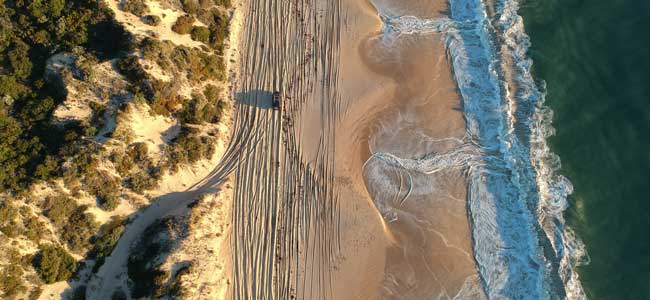The coronavirus (COVID-19) pandemic has changed the world, impacting the way we work, socialise, study and more. But what does the future look like?
BEL researchers are helping to predict impacts on the economy, real estate and tourism, and some are collaborating with university colleagues from the Group of Eight to contribute to the Roadmap to Recovery report. Some of these researchers share their thoughts below. Other UQ researchers are working to find treatments and help students learn in these testing times.
Economic recovery

Australian Institute for Business and Economics Director Professor John Mangan
Almost overnight the COVID-19 crisis has changed Australia from a free enterprise economy to a command economy with unprecedented Government spending. The future is uncertain but promising, with Australia emerging as one of the few relatively safe places (economies) in the world.
Professor Mangan is one of 15 UQ academics on the Road to Recovery Taskforce. His role is to estimate current economic loss to the Australian Economy from COVID-19 restrictions; estimate the impact of added duration on the economy; and examine ways of staged lifting of the restrictions from the point of view of minimum economic damage.
Contact: Professor John Mangan, jmangan@bel.uq.edu.au, +61 7 334 61630
School of Economics Professor John Quiggin
Some parts of the economy will snap back to normal once restrictions are lifted, producing a 'V-shaped' recovery. But in other respects, the recovery will be slower and more fragile, requiring continued government commitment to full employment.
Contact: Professor John Quiggin, j.quiggin@uq.edu.au, +61 7 334 69646
Post-pandemic tourism

Business School Associate Professor Gabby Walters
Australia’s tourism industry has been heavily impacted over the past six months but according to new survey data we have collected, many Aussies (58 per cent) are looking to travel locally as soon as they can, particularly to coastal and regional areas – which is welcome news for the economy, tourism operators, sector workers and the industry as a whole.
“But it won’t be back to business as usual; coronavirus will change travellers behaviour and expectations, and tourist operators will have their own ‘new normal’ imposed by tourist demands.
Contact: Associate Professor Gabby Walters, g.walters@uq.edu.au 3346 0593.
Impact on real estate

Business School Professor Sean Bond
The current pandemic is impacting the Australian economy and real estate market in a completely unprecedented way. It’s inevitable real estate will take a hit over the next few months – a lot depends on getting the economy working again.
Real estate in Australia is currently a buyers’ market, and those forced to sell will need to be realistic in terms of pricing.
For those looking to buy, it is wise to pause and consider how your ability to pay back a mortgage might be impacted given the strong likelihood the economy will fall into a severe recession. It will take several months for the impact of the crisis to become clearer.
Contact: Professor Shaun Bond, s.bond@business.uq.edu.au, 0422 072 895.
Other BEL Faculty academics who contributed to the report are:
- Business School's Yawei Jiang (PhD candidate), who wrote about the considerations and preparations to assist the reopening of businesses and workplaces in Australia. Ms Jiang is also a member of the Road to Recovery Taskforce.
- Business School Professor Sara Dolnicar, Antje Martins (PhD candidate) and Tyler Riodan (PhD candidate), who wrote about how new workforce models could be set up for the services industry to prevent the current unemployment crisis, especially among tourism and hospitality workers.
- Business School Dr Noreen Breakey, who wrote about the prioritisation for re-establishing Australia’s nature-based and eco tourism sectors.
- Business School Dr Kate Power, who contributed to the chapter on Communications.
- Business School Associate Professor April Wright, who wrote about the implications of her research on emergency departments for supporting frontline health workers.
- Law School Professor Nicholas Aroney, who wrote about the need for an allocation of responsibilities between national, state and local authorities as well as locally-tailored policy making.
- Law School Professor Andreas Schloenhardt, who wrote about the need for Australia to remember its obligations towards refugees, and to suspend the exit and entry restrictions when possible for Australian citizens.



